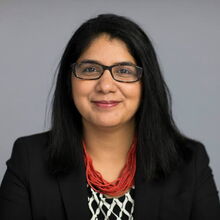

- Home
- ESWI activities
- Webinars
- Webinar: H5N1
Webinar: H5N1
ESWI webinar: H5N1 Informative series
4 June 2024, 17:00 - 18:30 CET
Moderator: Florian Krammer
Guests: Richard Webby and Seema Lakdawala.
This ESWI webinar featured a great line-up of European and American virologists specialised in influenza viruses at the human-animal interface.
The H5N1 Webinar complements the newly launched H5N1 Spotlight: Informative Series, a bi-weekly update on the H5N1 situation by ESWI. This series will offer a comprehensive list of recommended readings, bringing together scientific articles, institutional statements, and other pertinent publications on H5N1.





